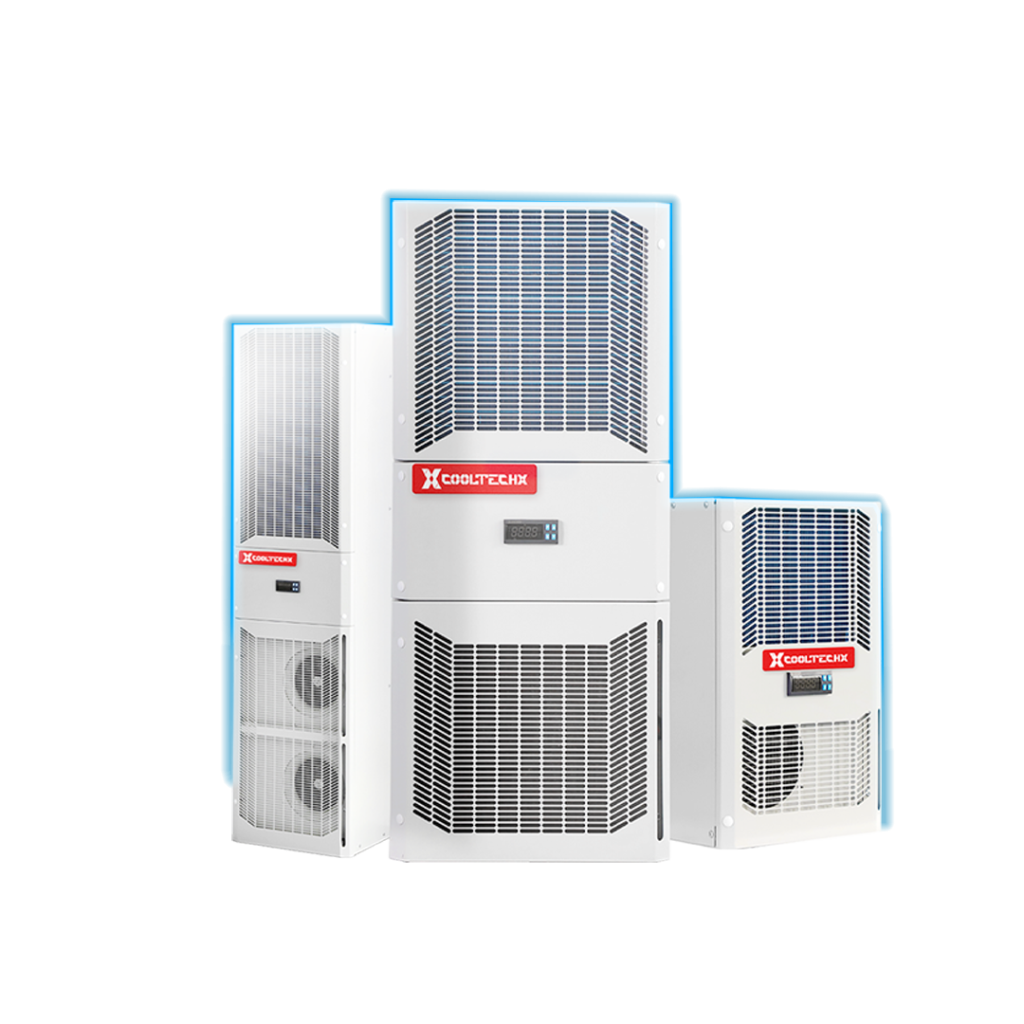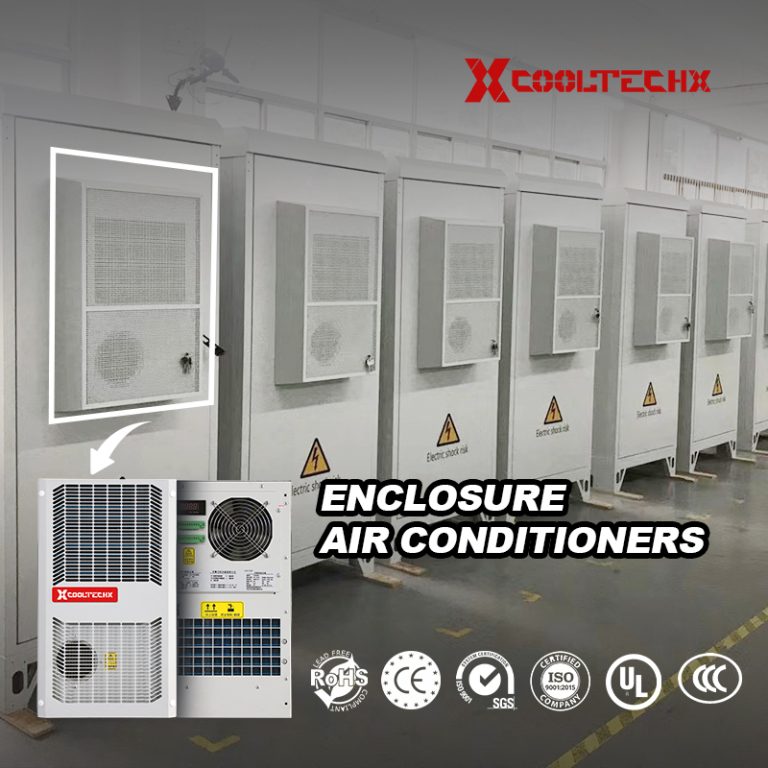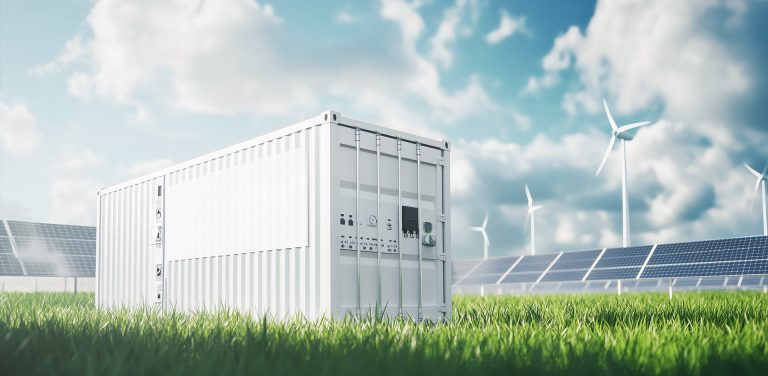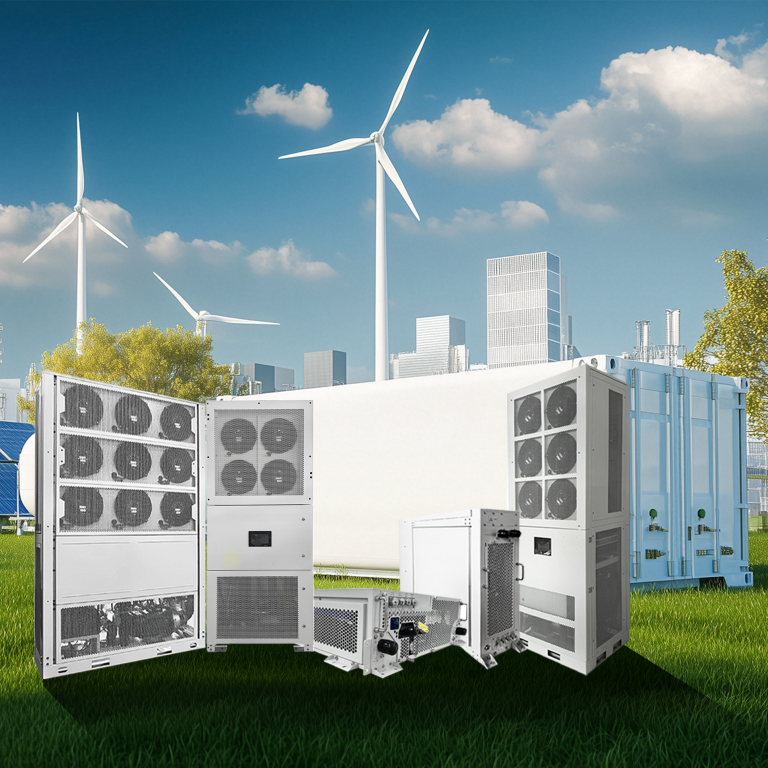Electric fans and industrial air conditioners are two common choices in cooling solutions for industrial equipment. However, their respective advantages and disadvantages make industrial air conditioning the superior choice. This article will compare these two cooling options in detail and explain the necessity of industrial air conditioning.
Main article:
In industrial production, heat dissipation of equipment is a problem that cannot be ignored. In order to maintain the normal operation of the equipment and extend its service life, an effective heat dissipation program is crucial. Currently, electric fans and industrial air conditioners are two common heat dissipation solutions. However, their respective advantages and disadvantages make industrial air conditioners the superior choice.
Electric fan cooling
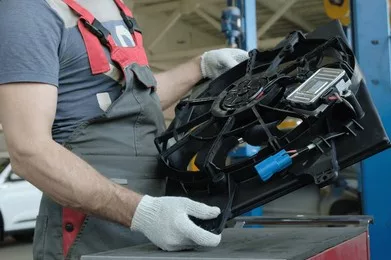
Advantages:
- Low cost: electric fans are relatively inexpensive to purchase and operate.
- Simple installation: electric fans are relatively simple to install and maintain.
Disadvantages:
- Limited heat dissipation: electric fans dissipate heat by blowing air, but in a high-temperature environment, their heat dissipation effect is limited.
- Unable to regulate temperature: electric fans cannot accurately control the temperature of the equipment, which may lead to overheating or overcooling.
- Unable to remove moisture: electric fans can only circulate air and cannot remove moisture, which may lead to corrosion and damage to the equipment in environments with high humidity.
- Noise problem: Electric fans may produce noise when running, which may affect the working environment of staff.
- Safety risk: the blades of electric fans may pose a safety risk to surrounding personnel and equipment when in operation.
Industrial air conditioners
Advantages:
- Good cooling effect: industrial air conditioners can provide continuous and stable cooling effect, effectively preventing equipment overheating.
- Controllable temperature: industrial air conditioning can precisely control the temperature of the equipment to ensure that the equipment is in the best working condition.
- Dehumidification function: industrial air conditioners can not only cool the air, but also remove moisture to prevent corrosion and damage to equipment.
- Low noise: Compared with electric fans, industrial air conditioners run at a lower noise level, which can provide a more comfortable working environment for staff.
- High safety: industrial air conditioners are designed and installed with safety in mind, which can effectively prevent safety accidents such as overheating of equipment and fire.
- Energy saving and environmental protection: many modern industrial air conditioners use energy-saving technology, which can reduce energy consumption and realize environmentally friendly production while ensuring the cooling effect.
- Extend the life of equipment: by keeping the equipment at the optimal working temperature, industrial air conditioners can effectively extend the service life of the equipment and reduce the cost of equipment replacement and maintenance.
- Improve production efficiency: equipment running at the right temperature can ensure its optimal performance, thus improving production efficiency.
Disadvantages:
- Larger initial investment: the purchase and installation costs of industrial air conditioners are relatively high.
- Higher operating costs: the operating and maintenance costs of industrial air conditioners are also relatively high.
Despite the high cost of industrial air conditioners, their excellent cooling effect and temperature control make them a must-have choice for factories. Industrial air conditioning not only protects equipment from overheating, but also improves its operational efficiency and service life. Therefore, we advocate that all factories use industrial air conditioners to ensure the stable operation and productivity of equipment.
Conclusion:
When choosing a cooling solution, we need to consider not only the cost, but also the cooling effect and the running status of the equipment. Industrial air conditioning has become the best choice for factories with its excellent cooling effect and temperature control ability. Let’s advocate the use of industrial air conditioning together to create a better environment for industrial production.


